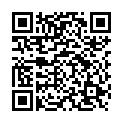|
|
|
| Module code: MBG21-15 |
|
|
6S (6 hours per week) |
|
10 |
| Semester: 4 |
| Mandatory course: yes |
Language of instruction:
German |
Assessment:
Exam achievement (Primary Studies in Health Care) / Course achievement (Evidence-Based Decision Making)
[updated 15.11.2021]
|
MBG21-15 (P311-0178, P311-0179) Management and Professional Pedagogy in Health Care, Bachelor, ASPO 01.10.2021
, semester 4, mandatory course
|
90 class hours (= 67.5 clock hours) over a 15-week period.
The total student study time is 300 hours (equivalent to 10 ECTS credits).
There are therefore 232.5 hours available for class preparation and follow-up work and exam preparation.
|
Recommended prerequisites (modules):
MBG21-1 Academic Methodologies and Study Skills I
MBG21-10 Methodologies II
MBG21-6 Scientific Work II
MBG21-9 Methodologies I
[updated 27.03.2025]
|
Recommended as prerequisite for:
MBG21-19 Academic Methodologies and Study Skills III
MBG21.S.32 Reviews and Guidelines
MBG21.S.33 Evaluation
MBG21.S.34 Nursing Care Counseling
[updated 27.03.2025]
|
Module coordinator:
Studienleitung |
Lecturer:
Dr. Sindy Lautenschläger
[updated 27.03.2025]
|
Learning outcomes:
Primary Studies in Health Care
After successfully completing this module, students will have the following skills and competencies:
.
Knowledge and Comprehension:
distinguish between different types of studies for different questions and know the respective advantages and disadvantages of each.
describe common study designs for diagnostic, epidemiologic, and randomized controlled trials.
explain the meaning of the confidence interval and estimate the statistical certainty of a result appropriately using this.
The Use, Application, and Generation of Knowledge:
Students will be able to calculate and interpret the statistical parameters for the quality of a diagnostic test and the evaluation of epidemiological studies.
They will be able evaluate empirical research findings in terms of the strengths and weaknesses of the study designs used.
Scientific Self-Concept/Professionalism:
Students will understand the use of different research designs in health care and be able to develop a professionally justified position with this knowledge.
They will be able evaluate empirical research findings in terms of the strengths and weaknesses of the study designs used.
Evidence-Based Decision Making
After successfully completing this module, students will have the following skills and competencies:
.
Knowledge and Comprehension:
Students will be able to explain the importance of science-based practice from the perspective of health professions.
They will be able to define basic terms related to the concept of evidence-based decision making.
They will be able to describe the concept of evidence-based decision making.
They will be able explain the importance of the so-called best available evidence for decision-making.
They will be able to explore and incorporate the needs and preferences of those affected.
They will be able to critically discuss the informed decision making model in light of their own personal and professional experiences.
They will be able to distinguish between different types of studies for different questions.
They will be able to describe the structure, as well as essential goals and tasks of the German Network for Evidence-Based Medicine.
The Use, Application, and Generation of Knowledge:
They will be able to apply individual steps of evidence-based decision-making to exemplary cases during the course (formulate questions, literature research, critical evaluation, application).
They will be able to critically evaluate research findings with respect to the research methods used and their implementation in health care practice.
Communication and Cooperation:
They will be able to advocate on behalf of vulnerable individuals and groups as stakeholders in health care interventions and programs.
They will be able to reflect upon and take into account the different perspectives of those involved/affected in joint discourse with their fellow students.
Scientific Self-Concept/Professionalism:
Students will have developed a critical attitude toward health care information.
[updated 15.11.2021]
|
Module content:
Primary Studies in Health Care
1. Overview of primary studies in health care
2. Diagnostic studies (design, quality criteria (sensitivity, specificity, predictive values))
3. Epidemiologic studies (design, statistical parameters (incidence, prevalence, odds ratio, relative risk))
4. Randomized controlled trials (design, primary and secondary endpoints)
5. Confidence intervals
Evidence-Based Decision Making
Discussion about the conception of science
Definitions of terms (evidence, evidence-based medicine and care, evidence-based practice)
Rationale and concept of evidence-based decision making (formulating questions, reviewing literature, critically appraising evidence, application, evaluation)
Significance of different types of studies (qualitative and quantitative research)
Possibilities, opportunities and limitations of the concept of evidence-based decision making
Implementing the concept of evidence-based decision making in health care practice.
The Deutsche Netzwerk Evidenzbasierte Medizin (DNEbM)
[updated 15.11.2021]
|
Teaching methods/Media:
Blended learning
[updated 15.11.2021]
|
Recommended or required reading:
Recommended literature will be announced at the beginning of the course.
[updated 15.11.2021]
|

